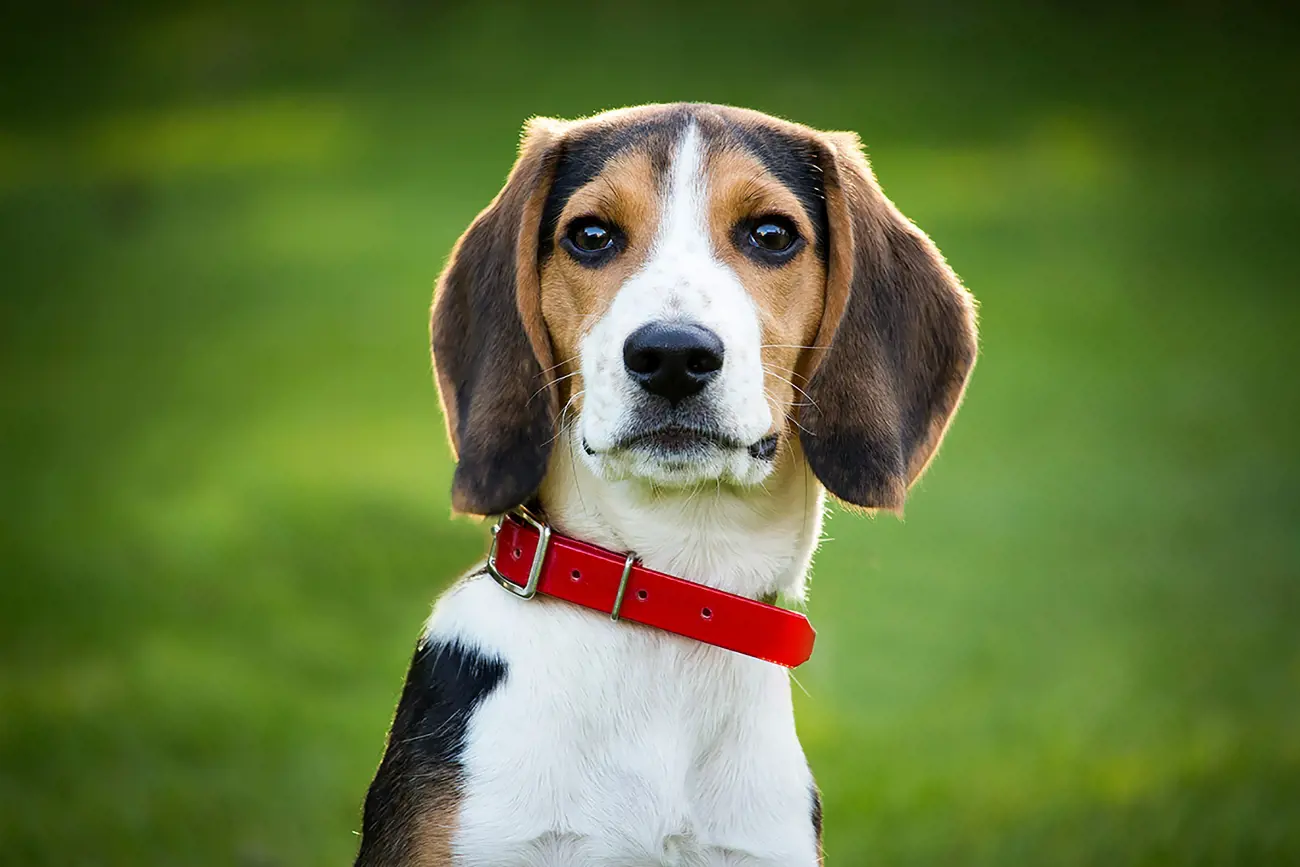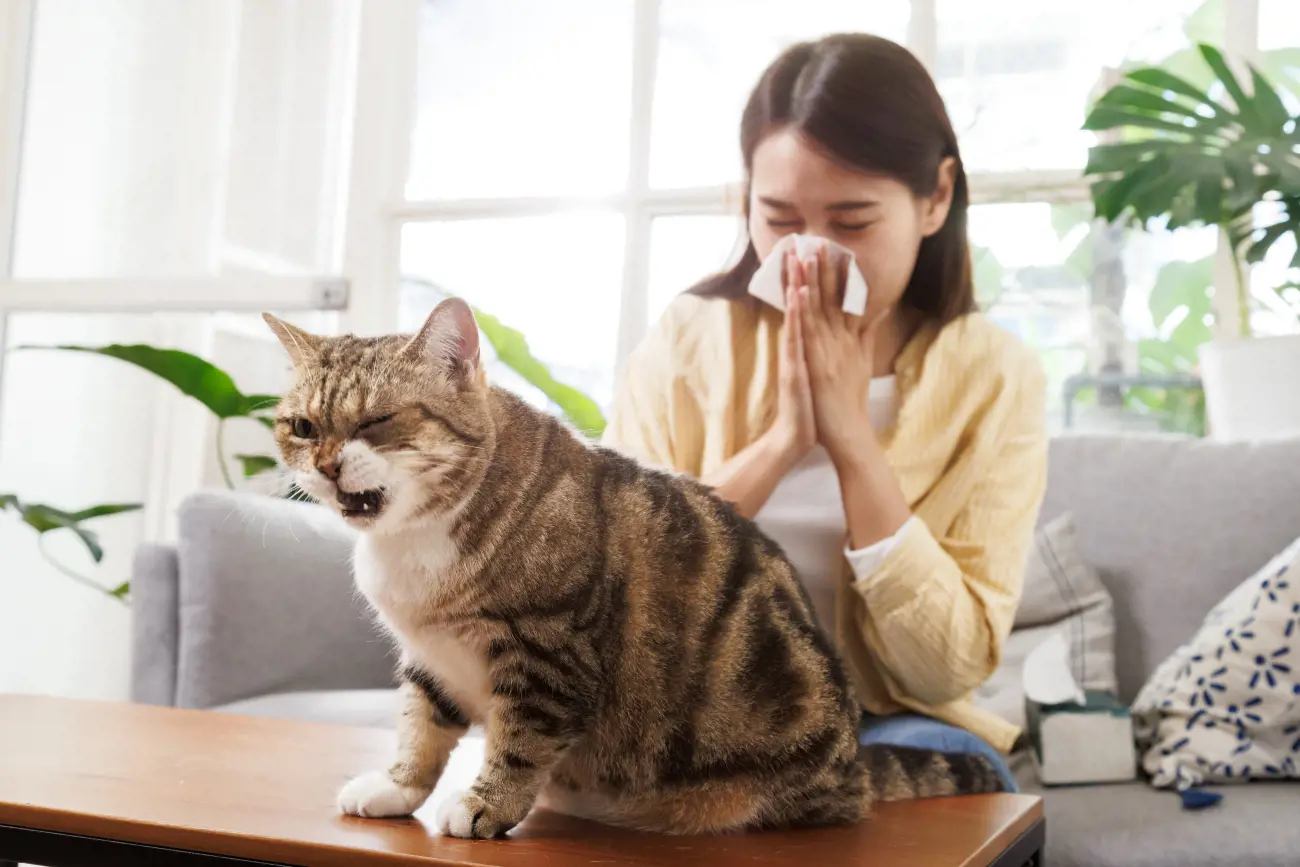Master the art of Cocker Spaniel ear care: How to clean your pet's ears like a pro
19th January, 2024

Introduction to Cocker Spaniel ear care
Cocker Spaniels are known for their endearing floppy ears that give them a unique and lovable appearance. But beyond their undeniable charm, these dog ears demand special attention and care. As a Cocker Spaniel owner, it's a smart idea to know how to clean Cocker Spaniel ears and maintain their health to keep your furry friend happy and comfortable.
In this article, you'll learn everything you need to know about Cocker Spaniel ear care, including the importance of regular ear cleaning, common dog ear problems, recognising signs of an ear infection, necessary tools for ear cleaning, and a step-by-step guide on how to clean Cocker ears at home.
You'll also discover tips for making ear cleaning a positive experience for your puppy, preventative measures to maintain healthy dog ears, and when to seek professional help for ear-related issues.
Importance of regular ear cleaning for Cocker Spaniels
Cocker Spaniels are prone to ear infections and other ear-related issues due to the structure of their ears. Their long, floppy dog ears create a warm and moist environment that is perfect for bacteria and yeast to thrive. This makes them more susceptible to ear infections than other breeds with more open and ventilated ear canals.
Regular ear cleaning is crucial for preventing infections and keeping your Cocker Spaniel's ears healthy. By consistently cleaning your dog's ears, you can remove debris, wax, and any potential irritants that could lead to inflammation and an infected ear.
Additionally, regular ear cleaning allows you to monitor your dog's ear health and quickly detect any changes or potential problems.
Common ear problems in Cocker Spaniels
Cocker Spaniels are susceptible to several ear issues, some of which are more common than others.
Here are a few of the most common ear problems your pup may experience:
- Ear infections: As mentioned earlier, Cocker Spaniels are prone to chronic ear infections due to their ear structure. These infections can be caused by bacteria, yeast, or a combination of both.
- Ear mites: These tiny parasites can cause severe itching, inflammation, and discharge in your dog's ears. They are contagious and can be easily transmitted between animals.
- Allergies: Allergies in dogs can cause inflammation and itchiness in your dog's ears, leading to discomfort and potential infections.
- Ear hematomas: A hematoma is a collection of blood outside the blood vessels, usually caused by trauma or excessive scratching. In Cocker Spaniels, this can occur in the ear flap and may require surgical intervention.
- Ear polyps or tumours: Although rare, Cocker Spaniels can develop benign or malignant growths in their ear canals, which can cause discomfort and hearing loss.
How to recognise signs of ear infections or issues
Detecting ear infections or issues early on is crucial for your Cocker Spaniel's comfort and overall ear health. Here are some signs to look out for that may indicate a problem with your puppy's ears:
- Persistent scratching or pawing at the ears
- Head shaking or tilting
- Redness, swelling, or discharge in the dog's ear canal
- Unpleasant odour coming from the ears
- Sensitivity or pain when touching the ears
- Hearing loss or changes in behaviour related to hearing
If you notice any of these signs, you should address the issue promptly, either by cleaning your dog's ears at home or consulting with a veterinarian.
Essentials for cleaning a Cocker's ears
Prior to initiating your dog's ear cleaning process, it's wise to have the subsequent essentials conveniently accessible:
- A few cotton wool balls
- Cotton tipped swabs or gauze squares
- Several tissues
- Blunt tweezers or hemostats (optional, for removing larger debris or foreign objects)
- Round-tip scissors
- A reliable ear wash solution
- A tiny bowl
- Therapeutic ear powder (if needed)
- Some rewards for a well-mannered Cocker Spaniel
In top-rated pet shops, you will discover an array of dog ear-cleaning solutions. A few of them might cause the ear to become dry. It's all about experimenting to find the best one.
Opt for a trusted brand, or you can consult your veterinarian for a suggestion.
What is the brown stuff in my dog's ears?
If you're a dog owner, chances are you've asked yourself, "What is the brown stuff in my dog's ears?" at some point. It can be quite alarming to see this substance inside your furry friend's ears, but don't panic!
There are a few reasons why this might be happening, and understanding them can help you keep your pet healthy and happy.
- Buildup of earwax: Just like humans, dogs' ears produce ear wax to protect their ears from dirt, debris, and bacteria. However, unlike humans, dogs' ear canals are shaped differently – they're more vertical and L-shaped – which can sometimes make it harder for earwax to naturally work its way out. This can lead to a buildup of earwax, which may appear as a dark brown or black substance.
- Ear infections: These are relatively common in dogs, especially those with floppy ears or allergies. If your dog has an ear infection, you might notice other symptoms such as redness, swelling, or a foul smell coming from their ears.
- Presence of parasites like ear mites: These can also cause brown debris in your dog's ears. These tiny insects can cause itching, inflammation, and discharge in the affected ear.
Step-by-step guide: How to clean Cocker Spaniel ears at home
Now that you're prepared with the necessary tools, follow these steps on how to clean Cocker Spaniel ears at home:
- Begin by gently holding your puppies earflap up and out to expose the ear canal.
- Apply the ear solution directly into the ear canal, filling it until you see the liquid at the opening.
- Gently massage the base of your dog's ear for 20-30 seconds, allowing the dog ear cleaning solution to break up and loosen any debris or wax.
- Release your puppy's ear and allow them to shake their head, which will help dislodge any debris further.
- Use cotton balls or gauze squares to gently wipe away any visible debris or wax from the ear canal. Avoid using cotton swabs, as they can push debris further into the ear or cause damage to the ear canal.
- If necessary, use tweezers or hemostats to remove larger debris or foreign objects from the ear canal gently.
- Dry your dog's ear with a towel or cloth, ensuring that the earflap and surrounding area are dry to prevent moisture buildup.
- Repeat the process on the other ear, and reward your puppy with a treat for their cooperation.
Should I use hydrogen peroxide to clean my dog's ears?
While hydrogen peroxide is known to have antibacterial properties, it may not be the best option for your furry friend's ears. Cleaning your Cocker Spaniel ears with hydrogen peroxide can cause irritation and even damage to their delicate ear tissues.
Moreover, hydrogen peroxide can break down the natural oils that protect your Cocker's ear, leading to dryness and potential infections.
Instead, opt for a gentle ear cleaning solution specifically formulated for dogs. These dog ear cleaning solutions are designed to safely and effectively remove dirt and debris without causing harm.
Tips for making ear cleaning a positive experience for your puppy
Cleaning your Cocker Spaniel's ears may not be their favourite activity, but there are ways to make the experience more enjoyable for your puppy:
- Start the ear cleaning process when your dog is relaxed and comfortable, such as after a walk or play session.
- Use positive reinforcement, such as praise and treats, throughout the process to create a positive association with ear cleaning.
- Be gentle and patient, taking the time to ensure your dog is comfortable and not causing them pain or discomfort.
- Make ear cleaning a routine part of your puppy's grooming process, so they become familiar and comfortable with the procedure.
Preventative measures to maintain healthy Cocker Spaniel ears
In addition to regular ear cleaning, there are several preventative measures you can take to keep your Cocker's ears healthy:
- Keep your puppy's ears dry, especially after swimming or bathing, to prevent moisture buildup and potential infections.
- Regularly groom your Cocker Spaniel, including trimming the hair around their ears, to promote airflow and reduce the risk of debris accumulation.
- Monitor your puppy's ear health, noting any changes in appearance, odour, or behaviour related to their ears.
- Maintain a healthy diet and lifestyle for your dog, as overall health can impact ear health.
How often should you clean Cocker Spaniels ears?
Cocker Spaniels are well-known for their long, floppy ears that add charm and character to their appearance. However, these beautiful ears can also be prone to infections if not properly cared for.
So, how often should you clean Cocker Spaniels ears? Ideally, it's best to clean their ears once a week to keep them healthy and infection-free. Regular cleaning helps prevent the buildup of wax and debris, ensuring your furry friend stays comfortable and happy.
Remember, a well-groomed Cocker Spaniel is not just about looks; it's also about maintaining their overall health and well-being. So, make ear cleaning an essential part of your grooming routine for a happier, healthier puppy!
When to seek professional help for ear-related issues
While regular ear cleaning and preventative measures can help maintain your Cocker Spaniel's ear health, sometimes professional help is necessary. Consult with your veterinarian if you notice any of the following:
- Persistent or severe ear infections that do not improve with at-home care
- Signs of a foreign object lodged deep within the ear canal
- Symptoms of an ear hematoma or suspected tumour
- Severe pain or sensitivity in your dog's ears, making at-home cleaning impossible
Mastering the art of Cocker Spaniel ear care

Caring for your dog's ears is a vital part of maintaining their overall health and well-being. By learning how to clean your dog's ears regularly, recognising the signs of ear infections or issues, and taking preventative measures, you can ensure your puppy's ears remain healthy and comfortable.
You may even want to learn how to bandage a dog’s ear tip in an emergency too. Remember, if you have concerns about your dog's ear health or need guidance on how to clean your Cocker Spaniel's ears, always consult with a veterinarian for professional advice.
To get a Cocker Spaniel insurance quote for your furry friend, you can get a quote through our website. If you would like to talk to one of our pet insurance team, you can get in touch with us on 0330 102 5748.
Helpful Pages
Recent Posts

Why do Great Danes bury their heads?
12/03/25
Find out more about Beagles
28/02/25Pet Insurance Quote
- 98% claims paid *
- Claims paid directly to vets
- 24/7 vet video consultations
- Interest free monthly payments


